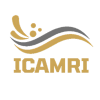Mediation
Where Communication Resolves Conflict
Executive at Mediation Practice of ICAMRI
Mediation was first legally recognized in India as a method of dispute resolution under the Industrial Disputes Act of 1947. It serves as an effective tool for resolving disputes without the need for judicial or statutory intervention. In mediation, a neutral mediator facilitates a confidential, face-to-face session where both parties have the opportunity to present their perspectives and hear each other’s claims. The process gradually moves towards identifying common ground, leading to a mutually agreed settlement.
Mediation is particularly valuable as it allows parties to address their long-term and underlying interests at each stage. This flexibility fosters creativity, enabling parties to explore alternatives, assess options, and reach a settlement that satisfies both sides. When the terms of the settlement are mutually agreed upon, compliance is generally assured.
The potential for mediation in India remains strong, as it is one of the most widely accepted forms of Alternative Dispute Resolution (ADR). Mediation is cost-effective and quicker than traditional legal proceedings, with no fixed procedures, allowing parties to customize the process to their needs.
The FMP (Fellowship in Mediation Practice) course provides both comprehensive and practical training, equipping participants to become skilled professionals in mediation—whether as Mediators, Counsel, or even as Clients. The training includes learning the core principles of mediation, strategies for creating win-win solutions, and gaining practical insight into each stage of the mediation process.
Globally, ICAMRI’s Fellowship in Mediation is recognized as a mark of high competence. Earning this fellowship signals to clients, colleagues, and regulators that the individual is trained, experienced, and proficient in the field of mediation.This book explores the impact of historical events in depth.
